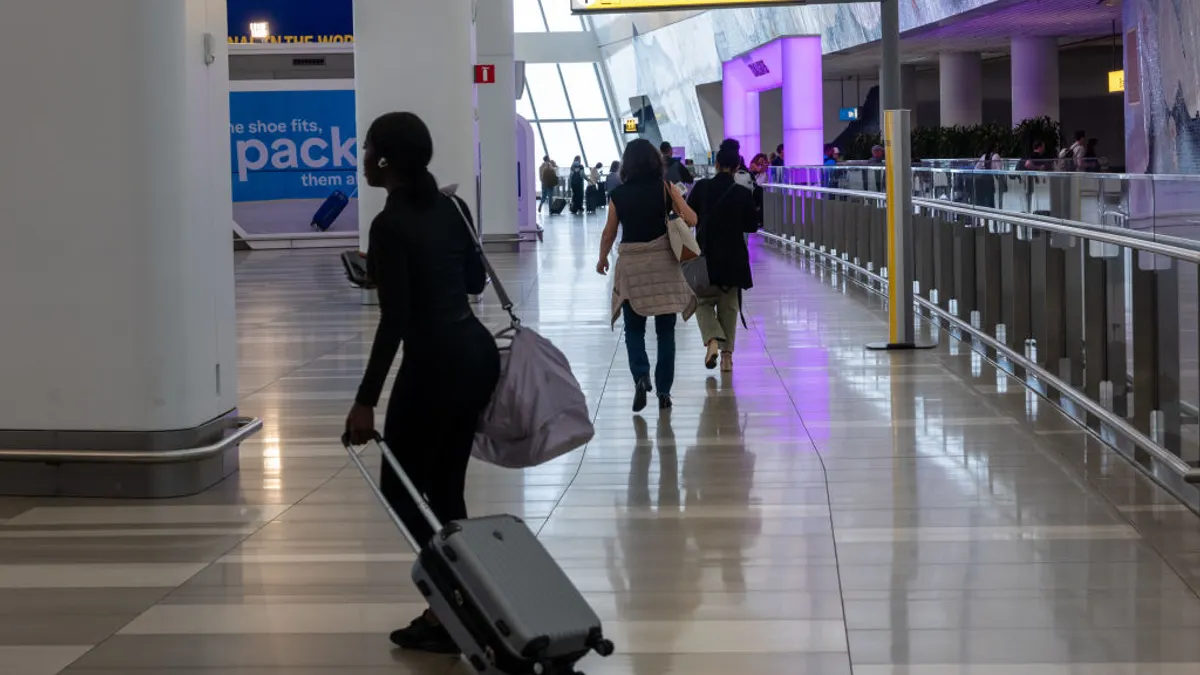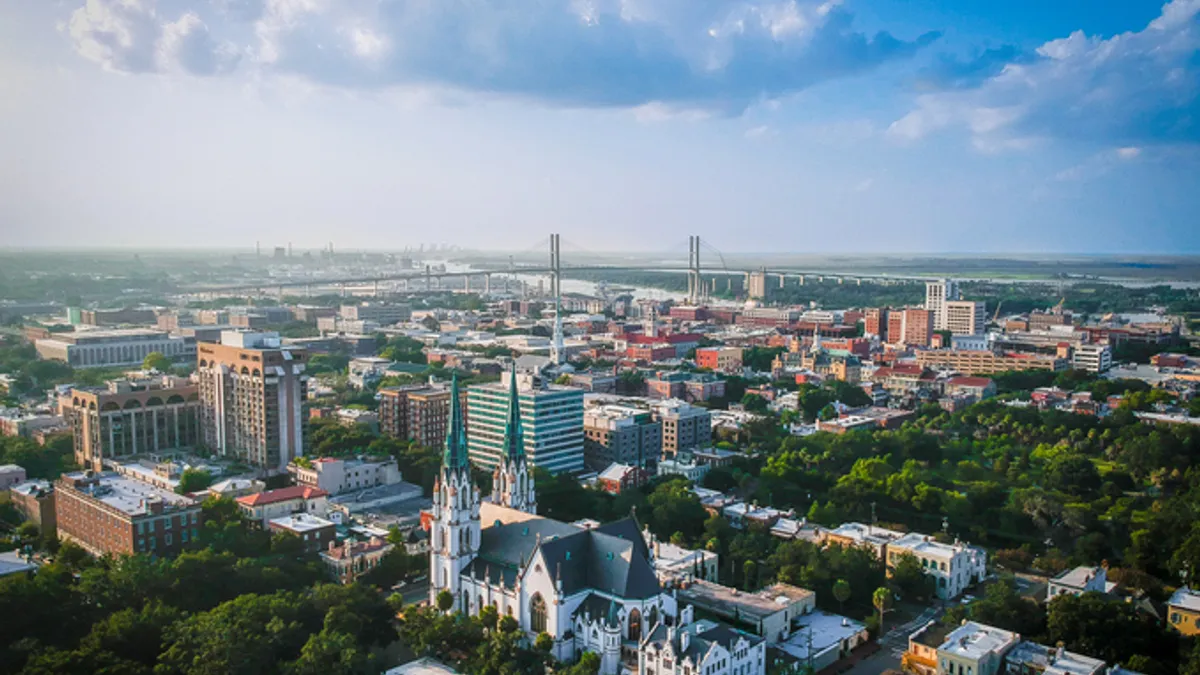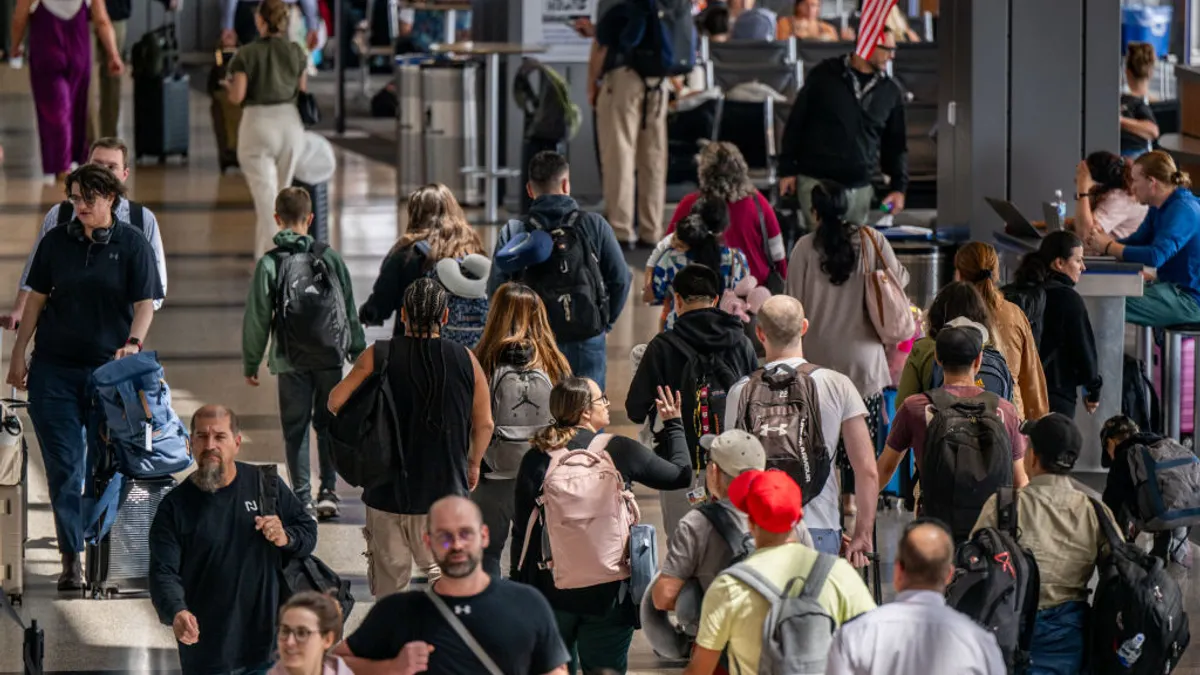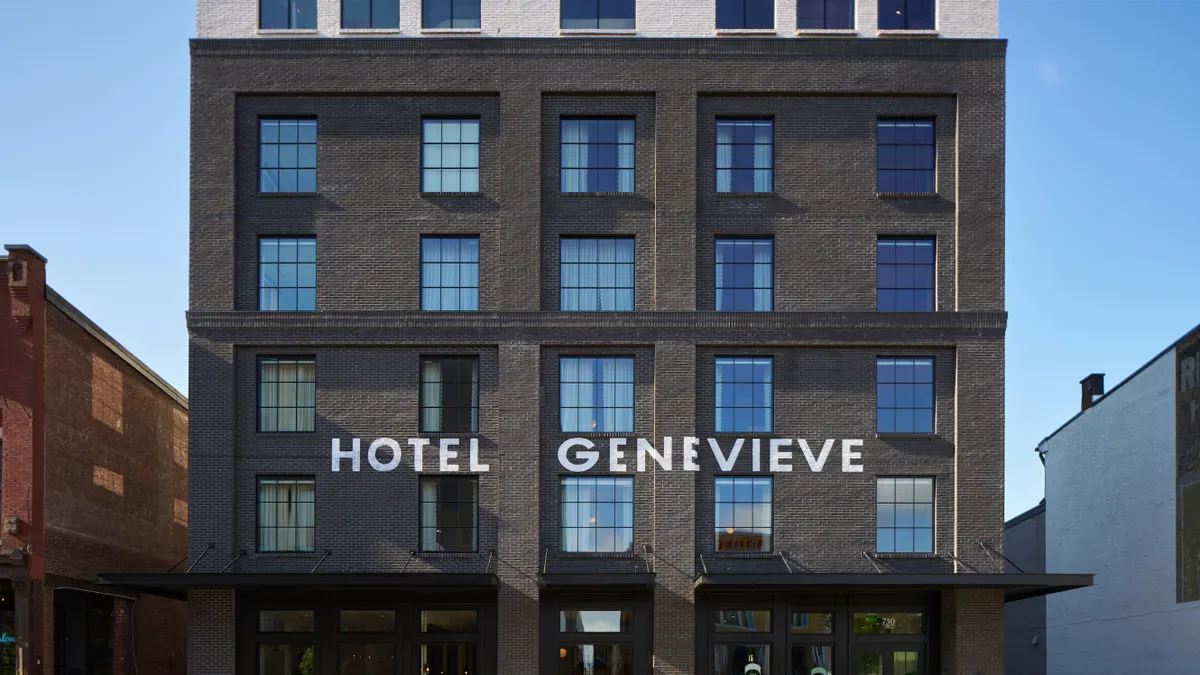Despite economic concerns, travelers are still planning to hit the road this Memorial Day weekend as the busy summer vacation season kicks off.
Some 45.1 million Americans are expected to travel at least 50 miles from home between Thursday, May 22, and Monday, May 26 — an increase of 1.4 million travelers over last year and a new Memorial Day weekend record, according to a report from AAA.
Consumers’ willingness to prioritize travel over the holiday weekend in light of economic uncertainty reflects a trend that will carry through the summer, experts told Hotel Dive. And there is a higher percentage of Americans traveling this summer and staying in paid lodging (53%) than in 2024 (48%), according to Deloitte’s “Right-sized American Summer: 2025 Deloitte Summer Travel Survey,” released this week.
“We are still seeing what we believe is going to be strong demand for travel this summer, even though there are some uncertain economic conditions,” Kate Ferrara, Deloitte’s vice chair and U.S. transportation, hospitality and services sector leader, told Hotel Dive.
Hotel Dive spoke with travel analysts about what hoteliers should expect this busy season, and how changing economic factors are — or aren’t — impacting travel this summer.
A slight pullback
Both 2023 and 2024 were so strong for travel and tourism that “it was always going to be hard for 2025 to compete,” according to Bank of America Institute’s Vacation Nation report, which is based on the bank’s transaction data and was released earlier this month.
“So much was positive for the consumer backdrop for travel the last two years,” Bank of America Institute Senior Economist David Tinsley told Hotel Dive, pointing to post-pandemic “revenge travel,” the growing experiences economy and a rebounding labor market. This year, however, “it's a more uncertain environment.”
Total debit and credit card spending on lodging was down year over year for the period between January 1 and May 3, 2025, according to Bank of America Institute’s report. “Consumer confidence has fallen very sharply since the start of the year,” Tinsley said.
Several hotel companies also downgraded their RevPAR expectations for the remainder of 2025 in first-quarter earnings calls following threats from tariffs and other Trump administration moves.
But while the confidence dip and the weakened dollar are impacting some consumer behavior, those trends haven’t been “cataclysmic” for travel, Tinsley said.
Some 70% of respondents to Bank of America’s Summer Travel Trends Survey said they plan on vacationing this summer — a 3 percentage point jump from 2024.
“In some ways, travel spending is doing okay, given what we see on consumer confidence,” Tinsley noted.
Deloitte similarly found that planned summer travel is expected to “hold steady” this year as compared to 2024, per its report. The report also found that Americans plan to spend an average of $3,471 on their longest summer trip, an increase — albeit less than 1% — year over year.
Notably, Deloitte’s survey shows that travelers’ outlooks dimmed somewhat between March and April. As of March, the average summer travel budget was set to grow 21% year on year, but by early April, that figure dipped to 13%, per the report.
“For those [travelers] that had economic concerns, they definitely became a little bit more prominent in April,” Ferrara said.
Managing costs
According to Ferrara, “people are prioritizing trips, they’re maybe just doing them differently,” noting that Americans appear to be managing costs by taking smaller, more frequent trips.
Though travelers plan to take an average of 3.1 summer trips this year, up from 2.3 in 2024, a higher percentage this year (41%) plan to take a trip of three nights or fewer, Deloitte found.
Allianz Partners’ Summer 2025 Vacation Confidence Index also found a rise in “micro-cations,” defined as leisure trips more than 100 miles from home for four nights or fewer.
Of travelers who told Deloitte in April that they plan to reduce their travel spend this year, the most common method is by taking shorter trips (43%), followed by staying at budget hotels (33%) and staying with family and friends (30%).
Additionally, fewer travelers this summer will stay at destination resorts, down 2 percentage points year on year, per the report.
Finances are also expected to impact traveler behavior when they reach their destinations, Deloitte found. Survey respondents who said they feel financially worse off this year are less likely to splurge on excursions, ticketed events or small-group or one-on-one classes while on vacation, per the report.
Demographic differences
Economic pressures, however, are impacting some Americans more than others.
Bank of America Institute found that lower-income respondents appeared most likely to say they aren’t planning a summer vacation at all. Lower-income travelers were also more likely to say they will travel domestically this year as compared to 2024, per the institute’s report.
That trend is relatively common, though, Tinsley pointed out.
“The skew is always away from lower [income travelers] towards middle and higher [income] people who positively plan to travel,” he said. The difference is that this year’s weaker dollar means “cost-sensitive, lower-income households are more inclined to stay local.”
Deloitte’s report also found that travelers with household incomes greater than $100,000 will make up nearly half of travelers this summer, while the share of travelers with income under $50,000 and between $50,000 and $100,000 continues to shrink (down 1 percentage point and 4 percentage points, respectively).
Affordability is still the biggest deterrent for those who said they will not travel this year, according to Deloitte, repeating a trend from 2024. “It’s really about pocketbook issues for those people choosing to stay home,” Mike Daher, then-Deloitte’s travel and hospitality sector leader, told Hotel Dive last year. “The major reason why they’re not traveling is related to their perception that travel is too expensive right now.”
Meanwhile, the number of international inbound travelers to the U.S. dropped sharply this spring, with the World Travel & Tourism Council predicting that the U.S. will lose $12.5 billion in international visiting spending in 2025.
However, the majority of American travelers continue to prioritize travel — which is good news for hoteliers, Ferrara noted.
“Our view is that the demand for hotels is still pretty strong,” she said.


















